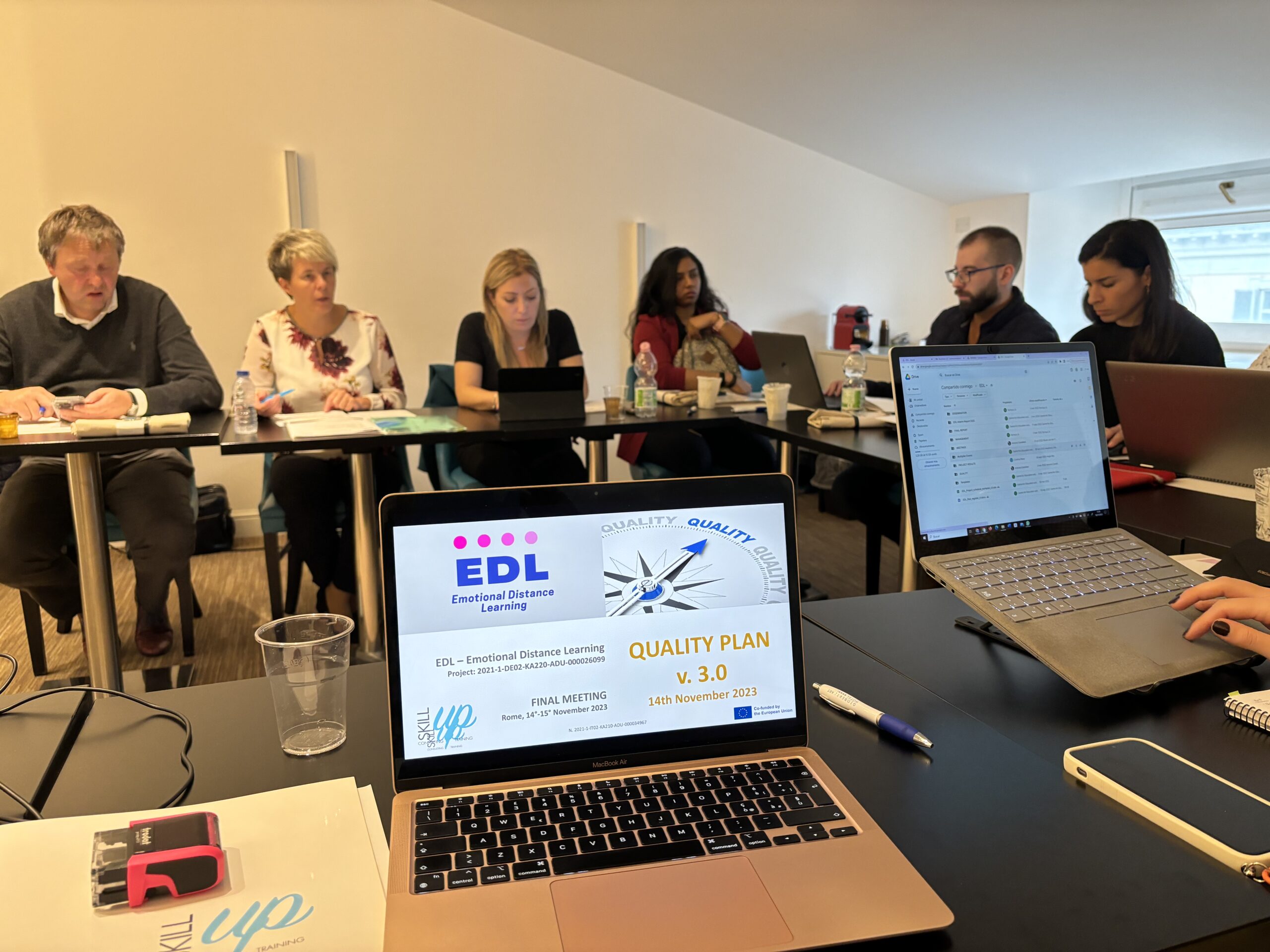By George Stergioulas, Akadimos
Menace: Poor time management article
The outbreak and the expansion of the COVID-19 pandemic introduced a plethora of unprecedented changes to the educational reality. Instantaneously, teachers, trainers, educators and students, not only of the adult sector, but of the educational community as a whole, had to revise everything they knew, from their teaching and learning methodologies, to even abolishing their pre–COVID daily routine, their techniques of time separation of tasks and their ‘’modus operandi’’ in general, regarding crucial educational obligations. Even for students, amending their time management techniques and abiding to the specific schedule, that the online learning imposed, was a difficult task. According to Judith Nesamalar, ‘’many students discovered that it is hard to find an equilibrium between their academic work and their day-to-day lives. With the COVID-19 pandemic, disruptions were seen in various aspects of life including the educational world’’ (2022).
In general, the origins and causes of poor time management are numerous and of different classifications, regarding education. Teachers’ inexperience, the disruptive students’ behaviour, the inadequate planning and exhaustion may lead to insufficient time management methodologies and to deficient practices of time separation of tasks (Primarily Kate, 2022). The outbreak of the pandemic reinforced the negative impact of poor time and task management on education. According to professor Sibel Cengizhan, ‘’the plans made about education in the COVID-19 process could not be followed due to the inability to perceive time, the process negatively affected time management as it created psychological pressure and wasted time’’(2021). So, as a result, we are more than certain to assume that poor time management strategies and the ineffective division of tasks may lead to strong emotional difficulties and tensions, especially in the field of adult education. Teachers and trainers experienced a great deal of working related fatigue, mental and physical, due to time pressure activities, which most of the times led to emotional exhaustions (Maas, 2021). Educators were forced to multitask, furtherly harming themselves, while degrading the quality of their online course concurrently. The reduced quality of the teaching process is an automatic result of multitasking, because as research shows, peak productivity is only achieved by doing one thing at a time. By giving attention to two or more things simultaneously, you are surely reducing the detail of your work (Linways Team, 2019).
Furthermore, from the students’ perspective of students, poor time management in online learning is among the most difficult and complex circumstances they are up against (Ronquillo, 2021) and according to McLean hospital (associated partner of Harvard University), students and people in general, who struggle with time management have more probabilities of experiencing negative sentiments such as anxiety, stress or even depression (2022). On top of that, the phenomenon is getting amplified, regarding the sector of adult education, where adults are in the constant need of balancing their job duties, their family commitments, while trying to keep up with their educational assignments at the same time (Kibin, 2022). Due to these circumstances, the perception of there is not enough time to handle all the aforementioned responsibilities is only increasing.
The partnership of Hochschule Wismar (Germany), Eurospeak Ltd (Ireland), Babel and Indepcie SCA (Spain), Skill up Srl (Italy) and Akadimos (Greece), constituted for the EDL – Emotional Distance Learning for the project purposes, aims to eliminate the emergence of emotional difficulties of educators and learners in the adult educational section. Through the development of the EDL training system, the consortium is aiming to equip trainers and students with the proper emotional management competences, both on intrapersonal and interpersonal level, in order to minimize potential sentimental outbreaks. Specifically, regarding the emotional difficulties, which originate from substandard time management tactics, the partners will create specialized didactic modules, where educators of the adult education sector, upon the completion of the instructional modules, will be able:
- To identify and apply proper time management methods during online lessons, with the purpose of making their students feel less reluctant but willing to participate in the online educational session – on interpersonal level
- To develop the sentiment of determination and tenaciousness , in order to follow specific but effective time management methods – on intrapersonal level
In conclusion, time management is a difficult task, especially when many aspects and tasks of the everyday life were forced to change, due to the outbreak of the pandemic. The project EDL – Emotional Distance Learning aims to provide not only trainers, but also students of the adult educational sector the proper socioemotional skills, based on their necessities, with the intention of assisting them to abide to the new educational reality.
References
Jasper Maas. (2021). Teachers’ perceived time pressure, emotional exhaustion and the role of social support from the school principal. Social Psychology of Education. Retrieved from: https://link.springer.com/article/10.1007/s11218-020-09605-8
Judith Nesamalar. (2022). Time management behaviour during the COVID-19 pandemic: A focus on higher education students. APJFES Vol. 1 No. 1 2022 pp. 17–38 eISSN 2811-3586. Retrieved from: https://seap.taylors.edu.my/file/rems/publication/104050_9681_1.pdf
Kibin. (2022). The challenge of time management and its effects on adult learning. Retrieved from: http://www.kibin.com/essay-examples/the-challenge-of-time-management-and-its-effects-on-adult-learning-RSxdlDQj
Linways Team. (2019). Why our teachers are multitasking geniuses and how does that affect the classroom instruction. Linways Technology. Retrieved from: https://stories.linways.in/why-our-teachers-are-multitasking-geniuses-f29da2301a02
Marife Ronquilo. (2021-2022). Students time management: Problem in online learning. Michigan School of Professional Psychology. Retrieved from: https://www.studocu.com/en-us/document/michigan-school-of-professional-psychology/human-sexuality-psychology/students-time-management-problem-in-online-learning/22900395
McLean Hospital. (2022). Do you manage your time well? Good time management and realistic goal setting can be two keys to better mental health. McLean Hospital. Retrieved from: https://www.mcleanhospital.org/essential/do-you-manage-your-time-well
Primarily Kate. (2022). Time management problems for teachers (and how to solve them!). Primarily Kate. Retrieved from: https://primarilykate.com/time-management-problems-for-teachers-and-how-to-solve-them/
Sibel CENGİZHAN. (2021). The effects of COVID-19. Process on time management of foreign language teacher candidates. Educational policy analysis and strategic research, V16, N2, 2021. Retrieved from: https://files.eric.ed.gov/fulltext/EJ1301907.pdf



0 Comments